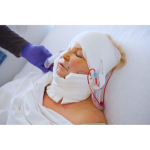South Carolina’s coast is a popular destination for boating and jet skiing enthusiasts, especially in Myrtle Beach, as it attracts many to its beautiful waterways each year. The state’s appeal for these water activities is evident, as the South Carolina Department of Natural Resources (SCDNR) reports that there are over 360,000 registered recreational motorboats and personal watercraft, a number that continues to grow annually. However, as the number of boaters increases, so do the risks. Recent statistics from the 2022 Recreational Boating Statistics reveal a troubling trend in South Carolina. Boating accidents and fatalities across the state have been on the rise. In 2022, the state experienced 22 recreational boating fatalities, with a total of 152 total boating and jet skiing accidents. This is a significant increase from 15 deaths and 130 total accidents in 2018. This upward of unfortunate fatalities and total boating accidents highlights the importance of ongoing safety efforts on the water, despite the best intentions of all those involved.
When speaking with boating accident attorneys or a jet ski accident lawyer, you can gain valuable insights into the many reasons behind these accidents. They’ll also tell you that while there are many potential causes, some are more common than others. By understanding these frequent causes, individuals can take proactive steps to enhance their and their passenger’s safety on the water. Implementing proper safety measures, such as wearing life jackets, adhering to speed limits, and ensuring equipment is in good working order, can significantly reduce the risk of accidents and reduce injuries and fatalities when they do occur. Being informed about these common causes empowers boaters and jet skiers to make safer choices and better prepare themselves for a secure and enjoyable experience on the water.
Operator Inattention
Operator inattention is one of the leading causes of boating and jet ski accidents in South Carolina, and causes many accidents every year. Similar to distracted driving, operator inattention occurs when boat or jet ski operators fail to remain vigilant. They may overlook potential hazards such as other vessels, swimmers, or unexpected obstacles in the water, which is dangerous. This lack of awareness can result in collisions, capsizing, or running aground, resulting in injuries or fatalities. Staying focused and alert at all times is crucial to preventing these types of accidents.
Operator Inexperience
Operating a boat or jet ski requires specific knowledge and skills, and there are plenty of boaters’ education courses to take in order to acquire this knowledge. Operator inexperience is a significant factor in many accidents. Inexperienced operators may not fully understand how to handle their vessels, or what to do in challenging conditions such as rough waters or crowded areas. Without proper boater education, these operators are more likely to make errors that can lead to accidents. Gaining experience and attending courses through the state can help mitigate this risk.
Improper Lookout
Failing to maintain an adequate lookout is another common cause of boating and jet ski accidents. A proper lookout involves continuously scanning the water and surroundings for potential threats, such as other vessels, obstacles, or changing conditions. When operators or their crew neglect to pay attention to what’s around them, they may miss critical cues that could prevent an accident. Ensuring that someone is always assigned to watch the water can significantly reduce the likelihood of boating accidents.
Excessive Speed
Speeding while operating a boat or jet ski is another frequent contributor to boating and jet ski accidents, particularly in South Carolina’s busy waterways. Operating at high speeds reduces the driver’s ability to react to sudden changes or obstacles, increasing the risk of collisions and loss of control, as well as the severity of injuries. Following posted speed limits and adjusting speed according to conditions, such as traffic and weather, are important practices for safe boating.
Machinery Failure
Machinery failure is a top cause of accidents, often resulting from poor maintenance or unnoticed mechanical issues when operators don’t check their equipment before setting off. When critical equipment such as engines, steering systems, or brakes fail, operators may lose control of their vessels, leading to dangerous accidents. Regular maintenance and thorough pre-trip inspections play an important part in preventing machinery-related accidents.
Alcohol Use
Alcohol use is a well-known factor in many boating and jet ski accidents, especially on holiday weekends. Operating a vessel under the influence impairs judgment, reaction times, and coordination, making it more difficult to navigate safely, and it’s also illegal. In South Carolina, boating under the influence (BUI) is not only against the law just as driving under the influence is, but also highly dangerous, contributing to a significant number of accidents and fatalities each year.
Navigation Rules Violation
Violating navigation rules is also a common cause of accidents on the water. These rules, often compared to the “rules of the road” for driving, are designed to prevent collisions and ensure orderly traffic on waterways. When operators fail to follow these rules—such as yielding the right of way or properly signaling their intentions—they increase the risk of accidents. Understanding and adhering to navigation rules is essential for safe boating.
Sharp Turns
Making sharp turns at high speeds or in congested areas is also a leading cause of accidents, as it can cause the operator to lose of control. Sharp turns can cause a boat or jet ski to capsize, collide with other vessels, or throw passengers overboard. To avoid boating or jet ski accidents, operators should make gradual turns, particularly in areas with heavy traffic or rough waters, and ensure they have ample space to maneuver.
Restricted Vision
Restricted vision, whether due to fog, rain, or objects on the vessel, is a significant hazard on the water. When operators cannot clearly see their surroundings, they are at a greater risk of colliding with other boats, buoys, or natural obstacles. Using proper navigation equipment, maintaining a safe speed, and avoiding operation in low-visibility weather and other conditions are important steps to prevent accidents related to restricted vision.
Inadequate Onboard Navigation Lights
Inadequate onboard navigation lights can make a vessel nearly invisible to others, especially at night or in poor visibility conditions. Proper navigation lights are essential for signaling a vessel’s presence, direction, and speed to other vessels on the water, and they are required by law. Failure to use or maintain these lights can lead to collisions and other accidents. Making sure that all required lights are functioning correctly and used appropriately is a key safety measure for nighttime or low-visibility boating when wanting to avoid boating accidents.



